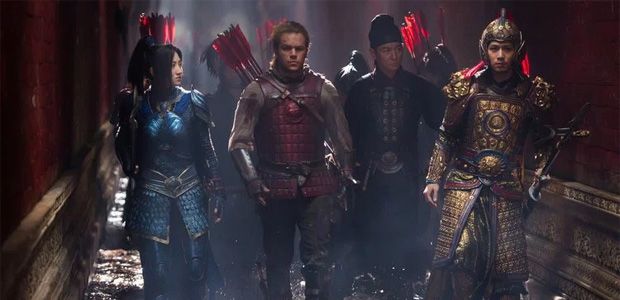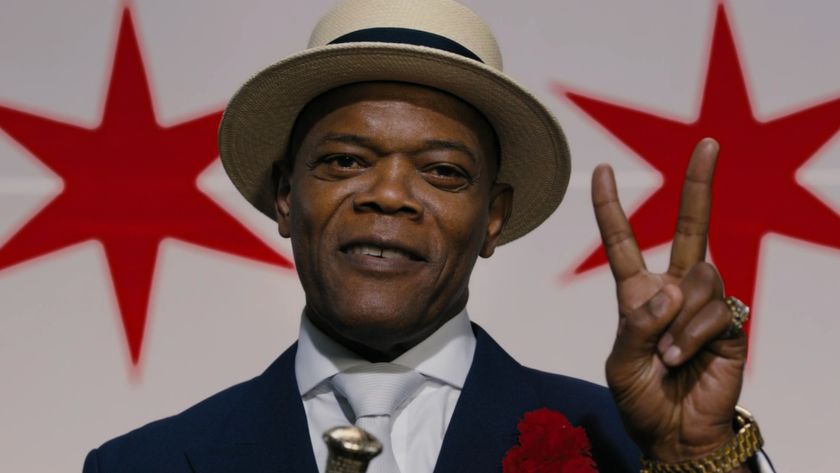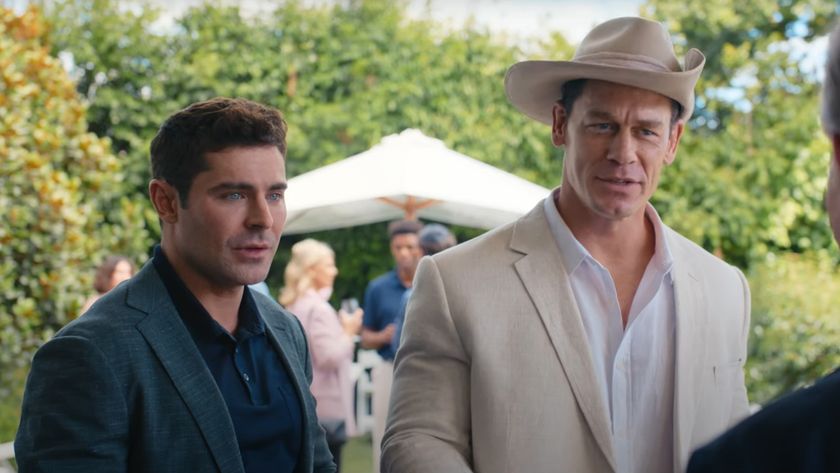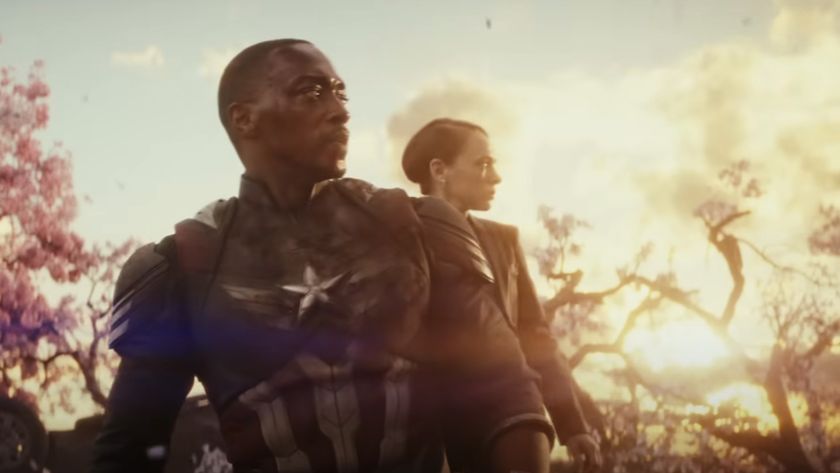Zhang Yimou is not a director who makes boring movies. Rather, his past films have sustained a long record as being beautiful, occasionally flamboyant, and frequently epic -- including his visually stunning wuxia titles Hero, House of A Thousand Daggers, and Curse of the Golden Flower. And yet, while there is certainly a flashiness to his latest, The Great Wall -- particularly expressed through a series of large-scale action sequences -- the most accurate adjective available to describe the blockbuster is dull.
At the core of the film's greatest problem is the fact that the high-concept script feels like it was developed after a two minute pitch meeting. ("What are your thoughts on a fantasy movie about the origins of The Great Wall of China?" "What if it was built to keep aliens out?" "Here's your check.") Centering on your basic rogue named William (Matt Damon) who has yet to discover the hero within himself, the story kicks off during China's Song Dynasty as the protagonist and his companion (Pedro Pascal) find themselves at The Great Wall in hopes of both finding and stealing the infamous and heavily sought-after "black powder." What they don't account for, however, is that the monumental structure is packed with a highly-trained warriors, and that their timing lines up with the long-awaited arrival of a horde of monsters called Tao Tai. Coincidentally, William is actually better at killing these beasts than any other fighter in the place, and while his companion continues to plan a heist of the army's greatest weapon, he does what he can to try and stem the alien invasion.
Rote as all that may read on paper, it's even more lackluster packaged into a 103 minute runtime. The lack of anything new, original or creative within The Great Wall's narrative completely undercuts any stakes that develop at any time, as it's easy to predict everything that's going to happen moment to moment. With the exception of Matt Damon (who is handed the simplest of arcs), none of the other actors in the ensemble are given anything to work with on an individual level, and there isn't a standout relationship between any of them. At the very least it doesn't take itself too seriously, with a handful of funny lines squeaking their way into the dialogue, but that's hardly a compliment to hang a hat on.
Thanks to Zhang Yimou's terrific style and impressive aesthetic eye, it's all but exclusively the big action sequences that give The Great Wall its biggest sell, but even in that department there are both steps forward and backward for the movie. The director's love of stunning, bright color is on full display in these sequences -- with the ranks and skills of the warriors at the Great Wall identified with beautiful reds, blues and golds in their armor -- and there is also some tremendous choreography on display, particularly executed by the Crane Corps, who operate by essentially bungie jumping at the enemy with long spears in hand.
Not quite as lovely are the thousands upon thousands of monsters attacking The Great Wall - and by that I mean there are some serious visual effects issues in play. Moving beyond the fact that every single monster looks exactly the same with the exception of "The Queen," making every stampede look like a loop, they also never succeed in looking anything near realistic. This is a fairly serious problem, considering it's hard to be at all invested when heroes are just killing or being killed by blurry collections of green pixels. There admittedly are moments, specifically quiet ones, when you're given a chance to really examine the Tao Tai, and they do actually look interesting as an individual design, but those moments are few and far between.
The sad end story of The Great Wall is that pretty much everyone involved with the project, given previously established talent, is capable of so much more. In that, the film is not only boring, but also disappointing. It could perhaps simply be enjoyed as mindless entertainment, but with so much other great material out there, it's ultimately just not worth the time.

Eric Eisenberg is the Assistant Managing Editor at CinemaBlend. After graduating Boston University and earning a bachelor’s degree in journalism, he took a part-time job as a staff writer for CinemaBlend, and after six months was offered the opportunity to move to Los Angeles and take on a newly created West Coast Editor position. Over a decade later, he's continuing to advance his interests and expertise. In addition to conducting filmmaker interviews and contributing to the news and feature content of the site, Eric also oversees the Movie Reviews section, writes the the weekend box office report (published Sundays), and is the site's resident Stephen King expert. He has two King-related columns.
Most Popular








